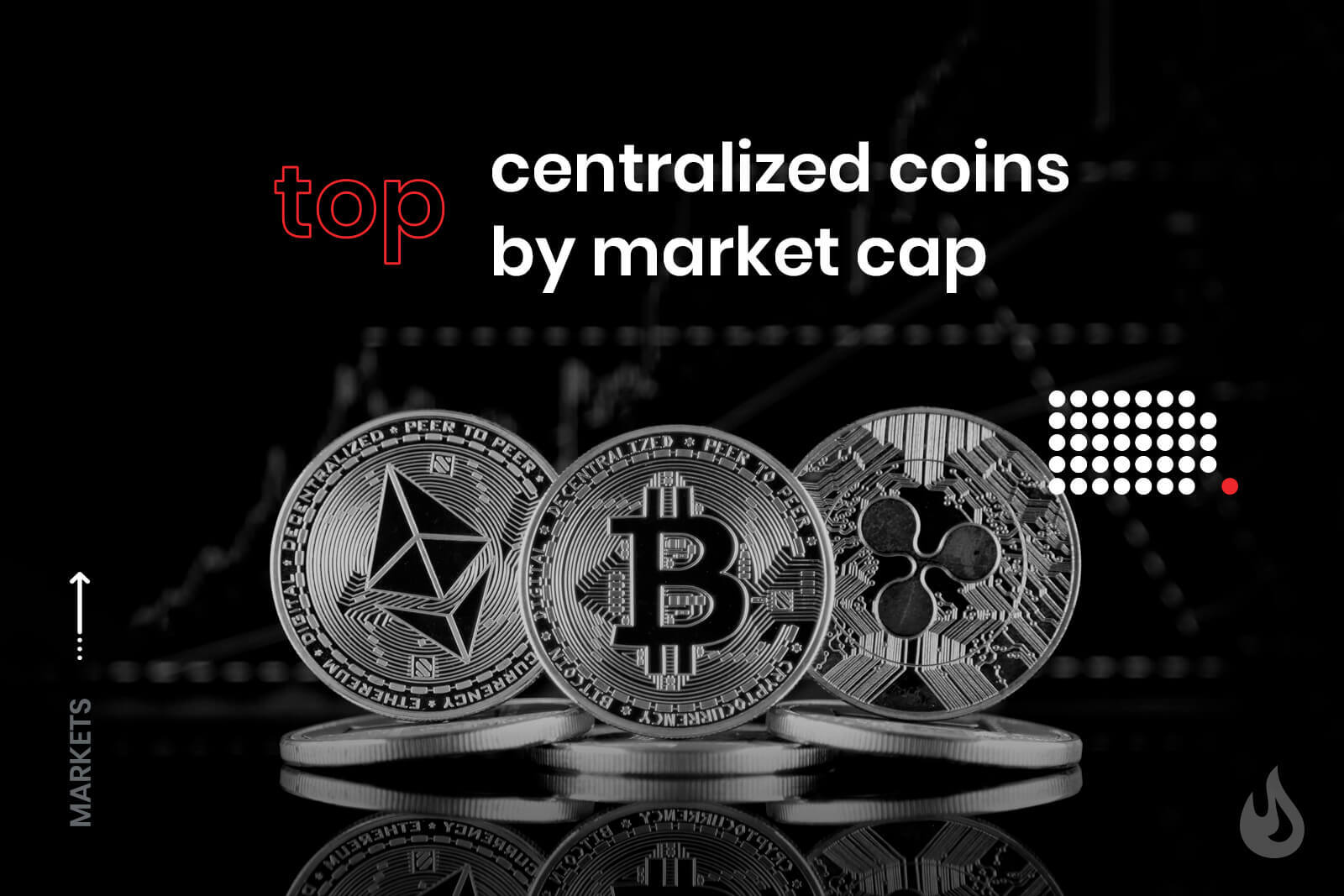
Bitcoin was created to disrupt financial institutions’ power by enabling cryptocurrency users to control their own assets through the blockchain. Decentralization is one of the main principles of cryptocurrencies, which aim to reassign control from centralized institutions toward the end-user. Banks are centralized institutions that control the global monetary system. However, they do not work in the interests of the masses, as was shown by the financial crisis of 2008.
Although cryptocurrencies should be decentralized by default through a global network of trusted nodes backed by the blockchain ecosystem, this is not always the case. New cryptocurrencies with real-world uses sometimes only show a front of decentralization. Some parts of their operations or ecosystem are still highly centralized, thus defeating the purpose of a cryptocurrency. Below we list some of the top centralized coins by market cap, which might have had you fooled.
On the Flipside
- As blockchain technology is becoming more widely used by enterprises, some clients require centralized nodes to ensure stakeholders are satisfied and feel safe.
- Potential business partners can see centralized coins as more trustworthy as they enter into contractual agreements.
- Not all blockchain coins are made for peer-to-peer transactions. Thus, they don’t require full decentralization to be functional.
XRP
Ripple Labs fully owns the nodes on the Ripple network. Their offering focuses on borderless transactions for financial institutions. Currently, Ripple is subject to an SEC lawsuit claiming the company is a security. While the lawsuit is unfolding, XRP can no longer be traded in the US, and Ripple has partnered with banks in Australia to implement the Ripple Network to create faster transactions. In 2018, Ripple teamed up with MoneyGram, but the company suspended the partnership in 2021 after the SEC’s allegations. Despite the coin being banned from trading in the US, XRP ranks as the 7th-largest coin by total market cap.
Theta
Theta’s price has increased by 17,000% in the past year, and it is currently ranked as the 9th-biggest cryptocurrency by market cap. The project aims to create a decentralized network to improve video streaming and content delivery services. Nodes on the network are governed and run by companies such as Samsung or Google as the service is focused on enterprise usage. According to Wu Blockchain, the top 10 wallets have over 61% of the total tokens, making the project highly susceptible to manipulation.
Bitcoin Cash
Bitcoin Cash forked from the original Bitcoin in 2017 as an initiative by Bitmain, the Chinese mining manufacturer. BCH aimed to address scalability issues that were undermining Bitcoin’s ability to compete with new projects. Bitcoin Cash requires more energy and costs to run a node, thus creating a barrier to regular individuals’ participation in the network. A group of people in the project force roadmap updates onto the network to make it more efficient and follow its own path toward becoming a better version of Bitcoin. Reports indicate that a single mining pool has more than 50% of the total network hash rate and can take over the network in a 51% attack. Currently, BCH is the 13th-largest coin by market cap, according to data from Coinmarketcap.
XLM (Lumen)
Centralization can occur through token distribution or node distribution. In the case of XLM, 97% of the tokens were pre-mined during the project’s genesis. A total of 50 billion coins were mined, but only 20 billion are currently in circulation. This brings forth issues of token centralization and could lead to price manipulation. A study published by KAIST highlighted flaws in the Stellar network; for example, if two main nodes were deleted from the network, the entire network would face the consequences. The research also highlights the fact that the Stellar Foundation operates those nodes. In May 2019, the Stellar Network went offline, reinforcing the researchers’ claims of high centralization. The coin is currently ranked 15th largest by market cap on Coinmarketcap.
IOTA
IOTA’s innovation of adding blockchain technology to accelerate the Internet of things era has come at the cost of increased centralization. Currently, the coin is trading at $1.43 and is ranked 28th largest by market cap. IOTA suffered a $4 million hack in 2018 and experienced a new attack in 2020 when funds were transferred from their wallets. The Tangle was forced to go offline, highlighting the network’s ability to be shut down by an entity (the founders). Additionally, IOTA has implemented the IOTA oracle, which, unlike Chainlink, does not operate on smart contracts but requires data to be run by the “coordinator” node for verification.
NEO
The “Chinese Ethereum” has failed to reach its promise of becoming a viable contender in the blockchain space. The NEO network was also unable to achieve the full ideal of blockchain technology as the company is dependent on seven centralized nodes. The NEO team runs all nodes, and critics have claimed that the founders hold 50% of all NEO tokens. NEO’s CEO highlighted that the network has been internationally centralized to make it more efficient. NEO is working on making the network more decentralized, but consensus still needs to be reached through their own nodes. NEO is currently trading at $44.50 and is ranked the 38th-largest coin by market cap.
Sponsored
